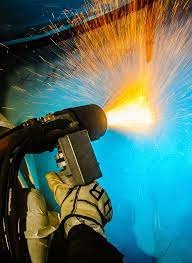Introduction about Boiler Tube Coating
When it comes to maintaining and optimizing the performance of boilers, there’s one crucial element that often goes unnoticed – boiler tube coating. While it may not be a topic that excites everyone, understanding the importance of this protective layer is essential for anyone involved in boiler operations. From extending the lifespan of boilers to improving efficiency, boiler tube coating plays a significant role in ensuring smooth operations and avoiding costly repairs. So let’s dive into this incredible technology and discover why it should be on every boiler owner’s radar!
Extending the lifespan of boilers and improving efficiency
Boilers play a critical role in many industries, providing the necessary heat and power for various processes. However, over time, boilers can experience wear and tear that may affect their efficiency and lifespan. That’s where boiler coating comes into play.
By applying a protective coating to the tubes of the boiler, you can significantly extend its lifespan while also improving its efficiency. The coating acts as a barrier against corrosion, scale buildup, and other forms of damage that commonly occur in boiler systems.
Corrosion is one of the primary causes of boiler failure. When metal surfaces are exposed to high temperatures and moisture for prolonged periods, they can start corroding. This corrosion not only weakens the structure but also reduces heat transfer efficiency.
Scale buildup is another common issue in boilers that can hinder their performance. When water containing minerals such as calcium and magnesium evaporates inside the boiler tubes, these minerals form deposits or scales on the inner surface. These scales act as insulators, reducing heat transfer efficiency and potentially leading to overheating.
Boiler tube coating helps mitigate these problems by creating a protective layer on the inner surface of the tubes. This layer prevents direct contact between corrosive elements or scale-forming minerals and the metal surface. As a result, it minimizes corrosion damage and reduces scale formation.
Additionally, by improving heat transfer efficiency through reduced corrosion and scaling issues, coated boiler tubes allow for better energy utilization. The more efficiently your boiler operates; less fuel will be required to achieve desired temperatures or pressure levels – resulting in cost savings for your business.
With extended lifespan due to minimized wear-and-tear from corrosion protection combined with improved energy efficiency from reduced scaling issues – investing in boiler tube coatings makes both economic sense (cost savings) while ensuring reliable operations throughout your industrial processes
Handling of Boiler Tube Coating
When it comes to the handling of boiler tube coating, there are a few key aspects to consider. Proper preparation is essential before applying the coating. This involves thoroughly cleaning and degreasing the tubes to ensure optimal adhesion.
Next, selecting the right type of coating is crucial. There are various types available in the market, each with its own unique properties and benefits. It’s important to choose a coating that is specifically designed for boiler tubes and can withstand high temperatures and corrosion.
The actual application process requires precision and expertise. The coating must be evenly applied on all surfaces of the tubes to provide complete protection. Special attention should be given to areas prone to erosion or corrosion.
Once applied, regular inspections should be conducted to monitor the condition of the coating and identify any signs of damage or wear. Any issues should be addressed promptly through appropriate maintenance measures.
Proper handling also includes ensuring proper storage conditions for unused coatings, following manufacturer guidelines for mixing ratios and curing times, as well as adhering to safety protocols during application.
By effectively handling boiler tube coating from start to finish, you can maximize its effectiveness in extending the lifespan of your boilers while improving their efficiency.
Conclusion
Boiler tube coating plays a vital role in extending the lifespan of boilers and improving their efficiency. By providing a protective layer on the tubes, it prevents corrosion and damage caused by high temperatures, chemicals, and other environmental factors.
Regular inspection and maintenance of boiler tube coating are crucial to ensure its effectiveness. The coating should be applied correctly, following industry standards and guidelines. It is essential to choose the right type of coating based on the specific requirements of your boiler system.
By investing in proper boiler tube coating, you can significantly reduce maintenance costs, minimize downtime due to repairs or replacements, improve thermal efficiency, and enhance overall performance. This not only benefits your bottom line but also contributes to a more sustainable operation.
Remember that proactive measures such as regular cleaning and monitoring are equally important alongside applying an effective tube coating. By prioritizing these practices, you can maximize the lifespan of your boilers while optimizing their performance.
In conclusion (without actually saying “in conclusion”), boiler tube coating is an indispensable aspect of maintaining efficient and durable boilers. Don’t overlook its significance – invest in quality coatings for long-term success!


